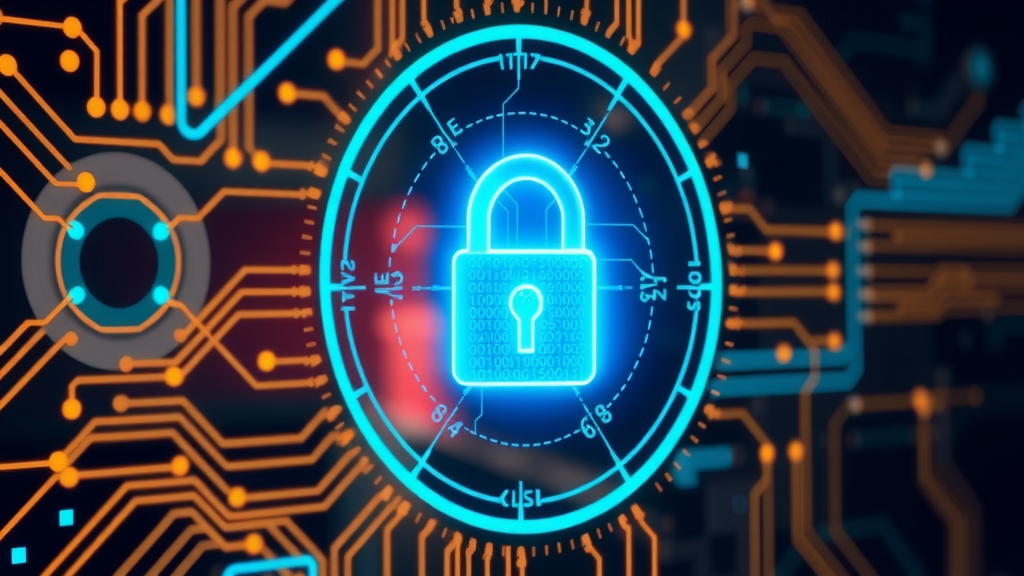You’ve got sensitive data you’re responsible for, and it feels a bit nerve-wracking, right? That’s where the security framework comes into the picture. This system focuses on the aspects of confidentiality, integrity, and availability when handling your information.
Each element serves a distinct purpose in crafting an effective strategy for data protection.
When these principles work in harmony, organizations can enhance their defenses against potential risks.
For instance, consider a business that emphasizes these components. This approach builds greater trust with clients and partners.
Neglecting even one of these critical areas might leave you exposed to threats you could have avoided. Now, let’s explore why the integrity of these principles matters as we shift our focus to confidentiality in the security framework.
This ensures the confidentiality, integrity, and availability of information within the security framework of effective risk management and data protection.
Confidentiality In The Security Framework
Protecting sensitive data is a priority for businesses and individuals alike. Safeguarding private information is a fundamental aspect of cybersecurity that ensures only those with proper permissions can access important details.
This includes everything from social security numbers to bank account info, and without strong measures in place, such data could easily be compromised.
Access controls serve as a key element in this protection, acting as barriers against unauthorized entry.
For example, effective authentication processes help verify the identity of users trying to gain access. Incorporating encryption adds another layer of security, turning information into formats unreadable to those without the right clearance.
Therefore, keeping sensitive information secure isn’t just a standard practice; it’s an integral part of maintaining data safety.
How Does Integrity Ensure Data Safety
Think of data safety like a sturdy bridge that needs solid support to stand tall. Integrity plays a vital role here, acting as the bedrock that keeps information accurate and shielded from corruption.
It’s super important to maintain precise data; when things go awry, misinformation can have serious ripple effects.
Regular audits and checks are key components of this process, working hand-in-hand with information assurance to spot any vulnerabilities that might lead to trouble.
- Accuracy Over Time
- Consistently checking data helps ensure reliability and trustworthiness, forming a foundation for compliance with security standards.
- These audits do more than just tick boxes; they enhance the overall strength of our data security measures.
- In the realm of cybersecurity, professionals focus on information assurance, threat mitigation, compliance, vulnerability assessment, incident response, and the implementation of firewalls to protect sensitive data.
- Regular data audits can reduce the risk of data breaches by identifying vulnerabilities early.
- Maintaining data integrity is crucial for compliance with regulations like GDPR and HIPAA.
- Accurate data supports informed decision-making and enhances organizational efficiency.
- Implementing robust information assurance practices can significantly mitigate potential threats.
Availability: Key To Business Continuity
Ensuring smooth operations is the backbone of any thriving business, and having the necessary resources at your fingertips makes all the difference. It’s not about just being present but about having everything lined up perfectly when you need it.
When you prioritize consistent access to resources, you’re not just saving time; you’re also safeguarding your reputation and potential revenue.
Picture a system crash disrupting a crucial operation—this is where robust security policies and safeguard measures become essential.
By setting up redundancy and failover systems, you enhance overall system resilience, making it easier to bounce back from unexpected hurdles. Regular maintenance keeps everything running seamlessly, ensuring your operations stay ahead of any lurking issues.
Availability goes beyond mere convenience; it’s a fundamental aspect of ongoing business success.
Investing thoughtfully in this area now lays the groundwork for a more secure and sustainable future for your company.
What Is Risk Management In Security
Imagine having a trusty guide by your side when it comes to safeguarding your valuable assets. This process involves pinpointing and analyzing possible threats that could jeopardize your organization.
Spotting vulnerabilities early helps prevent them from snowballing into significant issues.
Security audits are a key tool in this entire adventure, allowing you to evaluate your current stance and identify areas needing improvement.
By grasping these potential risks, you can craft effective strategies to bolster your defenses against data breaches. It’s not merely about dodging disasters; it’s about taking proactive steps to ensure your digital realm remains secure and sound.
Safeguarding Assets
- Early identification of vulnerabilities can reduce the risk of significant security breaches.
- Security audits help organizations assess their current security posture and uncover weaknesses.
- Proactive strategies in cybersecurity can lead to a more resilient digital environment.
- Addressing potential risks can save organizations from costly data breaches and reputational damage.
Importance Of Data Protection Strategies
Our reliance on information is so profound that safeguarding it should feel like second nature. When it comes to secure communication, the goal is to ensure sensitive data remains private.
Just imagine how a single breach can disrupt everything you’ve built.
This underscores the need for robust strategies that help mitigate risks and enable your team to function seamlessly.
When you embrace effective data governance practices, you’re taking proactive steps to prevent issues before they arise. It’s all about maintaining operational security and ensuring your enterprise continues to thrive.
As we transition from understanding risk management to adopting cybersecurity best practices for everyone, keeping data secure remains at the forefront of our mission.
Cybersecurity Best Practices For Everyone
Keeping your digital life secure can be straightforward and even a bit fun!.
- Use Strong, Unique Passwords:
- Mix uppercase, lowercase, numbers, and symbols to create a robust password that stands up to malware protection efforts.
- Consider a password manager for convenience; it helps keep your passwords organized and secure while minimizing the risks of phishing prevention. essential step in fortifying your defenses against threats such as malware and phishing attacks, ensuring business continuity and effective disaster recovery.
Digital Security
- According to a study, 81% of data breaches are caused by weak or stolen passwords.
- Using a password manager can reduce the likelihood of password reuse, which is a major risk factor in security breaches.
- Strong passwords can take over 200 years to crack using current technology, significantly increasing your security.
- Implementing multi-factor authentication alongside strong passwords can further enhance protection against unauthorized access.
Understanding Access Controls And Their Role
Imagine trying to keep your favorite belongings safe without the right tools. That’s where the importance of keeping information secure comes into play.
Access controls are a fundamental part of protecting sensitive data from unwarranted eyes.
Think of the physical aspects, like sturdy locks on doors, alongside the digital side, such as robust passwords and firewalls.
These security measures help organizations protect valuable information and build trust with clients, which is especially important when security incidents could threaten reputations. The goal here is a secure infrastructure where only the right people can gain entry.
Keeping these safeguards up to date is essential for maintaining safety.
Let’s dive into the two main components that bolster these security measures. First up is authentication, which is all about verifying identities. You might think of it as a way to ask, Who are you? To do so effectively, consider incorporating backup solutions, secure access, zero trust policies, and data encryption within a secure infrastructure to mitigate security incidents.
Incident Response Plans For Effective Mitigation
Picture incident response plans as your organizational life jackets; they are there to keep you afloat when the waters get rough. These strategies aren’t merely a safety net—they’re a crucial part of how to tackle unforeseen challenges effectively.
Let’s highlight why they matter and the key points to keep in mind.
Key Points to Discuss
- Well-crafted security strategies streamline reactions to security incidents, reducing chaos and confusion when every second counts.
- Having a structured approach helps organizations protect sensitive data and maintain public trust during potential crises.
- By addressing security strategies, compliance frameworks, and the ever-evolving threat landscape, organizations can effectively implement data loss prevention measures, maintain cyber hygiene, and provide comprehensive security training to their employees.
Questions to Answer
-
- .
Incident Response Plans
-
- Organizations with incident response plans can reduce the average cost of a data breach by up to 30%.
- Studies show that 60% of companies without a response plan fail within six months of a cyber incident.
- Effective incident response can improve recovery time by 50%, allowing businesses to resume operations faster.
- Regular training and updates to incident response plans can enhance employee readiness and reduce response times by up to 40%.

